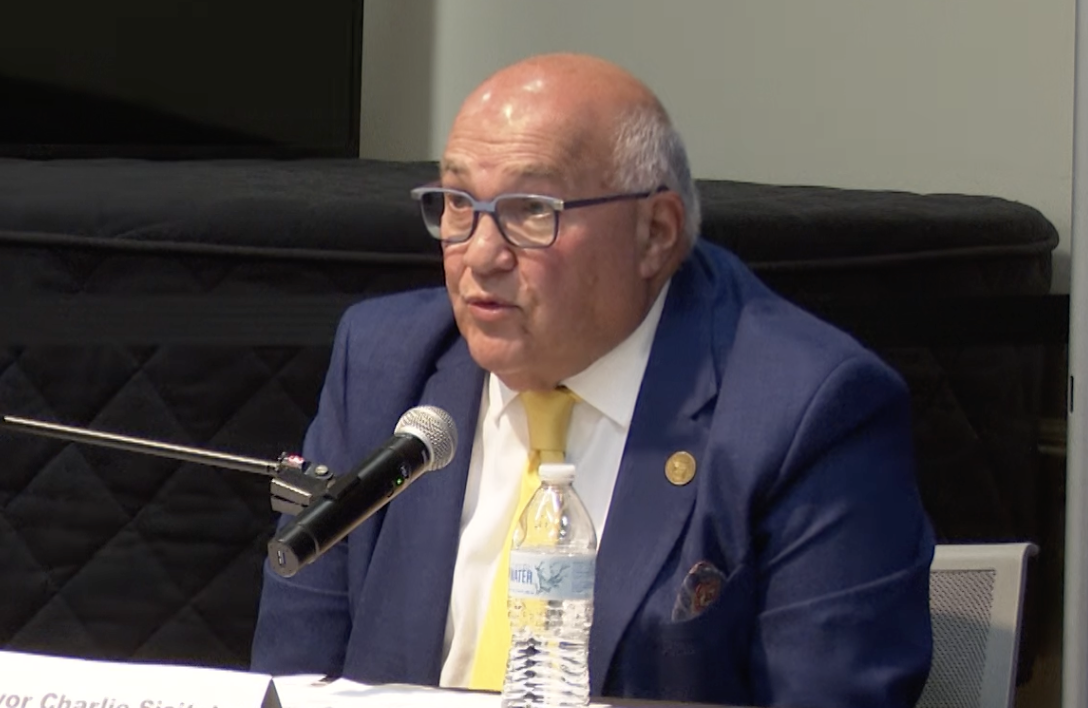East Middlesex Mosquito Control Project aims to monitor, mitigate risk of West Nile and EEE.
FRAMINGHAM - The Framingham Board of Health reviewed efforts to minimize the impact of mosquito-borne illnesses during their meeting on Tuesday, August 13.
During the meeting, Superintendent of the East Middlesex Mosquito Control Project (EMMCP) Brian Farless gave insight regarding mosquito surveillance and mitigation efforts across the region.
The meeting came as Framingham remains at a moderate risk for West Nile virus. Middlesex County accounts for 19 of the 205 positive West Nile samples found across Massachusetts this season as of the time of publication. The second human West Nile case of 2024 was detected within Middlesex County as well, as the Massachusetts Department of Public Health announced on Monday that a man in his 70’s within the county had contracted the virus.
Farless said the EMMCP is working on offering pest management, public education, and other resources to prevent the risks of mosquito-borne illnesses. He added that spraying, trapping, and other efforts—all measures supported by Framingham Public Health Director Bill Murphy—will continue through August and, at least, into September.
“It’s a very science-based program,” Murphy said on Tuesday.
“I think I want to emphasize that for the community—that’s it’s a very scientific approach to mosquito control, that we’re just not sending trucks on the road blanketing the town with pesticides. It’s really, largely, linked to surveillance, and we’re watching populations and types of mosquitoes.”
Farless mentioned that residents can opt to be excluded from spraying near their homes by reaching out to the Massachusetts Department of Agricultural Resources.
A total of 40 positive samples of Eastern Equine Encephalitis (EEE) have been found in the state this year as of Wednesday, August 14. None of those samples have been detected in Middlesex County as of the time of publication, while there have been no human EEE cases within Massachusetts thus far in 2024.
As positive EEE samples popped back up in Massachusetts last fall, Farless explained that the EMMCP team prepped to make the MetroWest area ready for any situation, whether it’s during this mosquito season or beyond.
“So with that, we’re doing a lot more testing this year in many of our cities and towns, including Framingham,” Farless continued.
“We’re pulling a lot of different species out of the light trap that we’re using, which catches mammal-biting mosquitoes, and we’re sending those to the Massachusetts Department of Public Health to be tested for EEE and West Nile.”
With the potential for mosquito-borne illnesses set to continue for the rest of the summer and into the fall, local and state officials are reminding residents about what they can do to limit risks. Time outdoors during dusk and dawn—the peak times for mosquito activity—should be limited, while clothing like long sleeved shirts and pants should be worn outside during those hours. Screens for doors and windows should be installed or repaired, insect repellent should be utilized, and standing water around homes should be dumped in order to prevent mosquitoes from laying eggs. Farless noted during the meeting that mosquitoes do not need a lot of water to lay those eggs.

About 23% of registered Framingham voters cast a ballot in 2025. Charlie Sisitsky defeated Geoff Epstein to win another term as mayor, while John Stefanini and Mary Kate Feeney won in their respective City Council races. Brandon Ward and Michael Cannon were reelected to the local legislative board, while Lorena Tovar and Brent Lewis were victorious in their School Committee bids. Changes to the city's Home Rule Charter received overwhelming support as well.